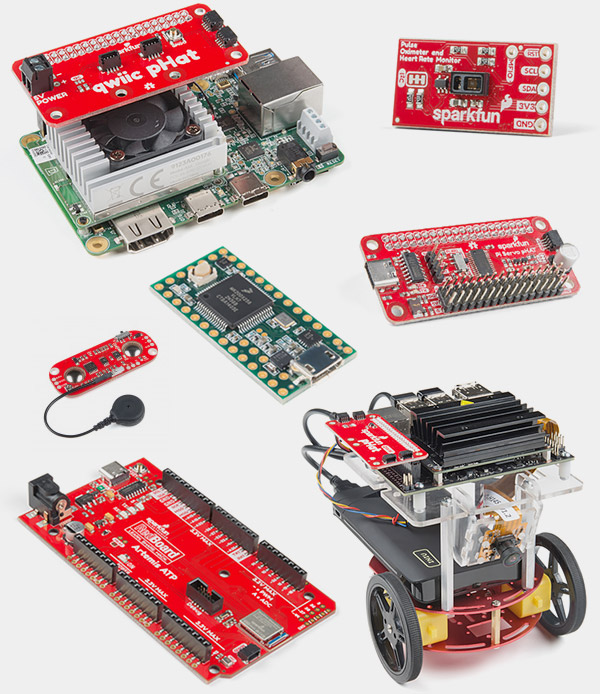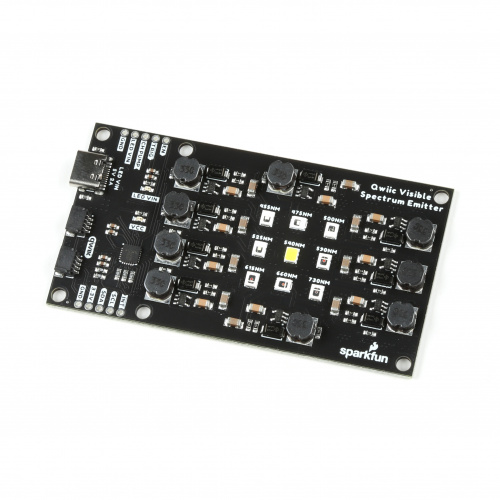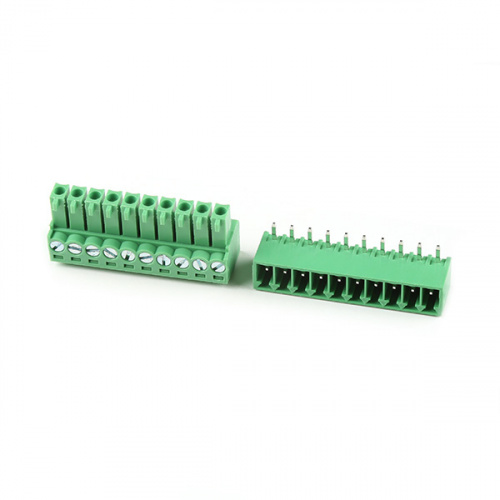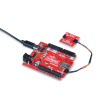Hello and happy Friday, everyone! We're back once again with another new product post here at SparkFun Electronics! This week, we have two new products to show off and we'll start with the Qwiic Visible Spectrum Emitter, fresh from SparkX. After that, we take a look at a new 10-way Terminal & Socket for secure power sourcing! Now, let's jump in and take a closer look at this week's new products!
The Qwiic Visible Spectrum Emitter combines nine discrete LEDs spanning the visible spectrum from 455 to 720nm. Each LED emits light with a narrow peak wavelength, with one exception made for the phosphor-based green LED in the middle of the spectrum. We compromised on green so that all of the LEDs would be in the same luminous intensity ballpark without breaking the bank.
This is a rugged 10-way 3.5mm-pitch PCB terminal block & 3.5mm-pitch rising clamp screw socket. Ideal for robust I/O and power connections when paired together.
That's it for this week. As always, we can't wait to see what you make. Shoot us a tweet @sparkfun, or let us know on Instagram, Facebook or LinkedIn. Please be safe out there, be kind to one another! We'll be back with more new products next week so make sure to check back then. Happy hacking!










FWIW, the 10-Way Terminal & Socket is commonly called a "Phoenix connector", although I believe that name, like "Kleenex", is actually a trademark. The "plug and socket" style has an interesting use in things like automated manufacturing machines, where there's an electronic device (such as a PLC -- Programmable Logic Controller) that is connected to a whole bunch of sensors and things like motors and solenoids -- this style of connector allows for changing out the controller without the hassle of getting each and every one of those wires into the right place.
I'm mentioning this here as it's a system that I've only run into in the past few years, despite having been "doing" electronics since the mid-1960s.